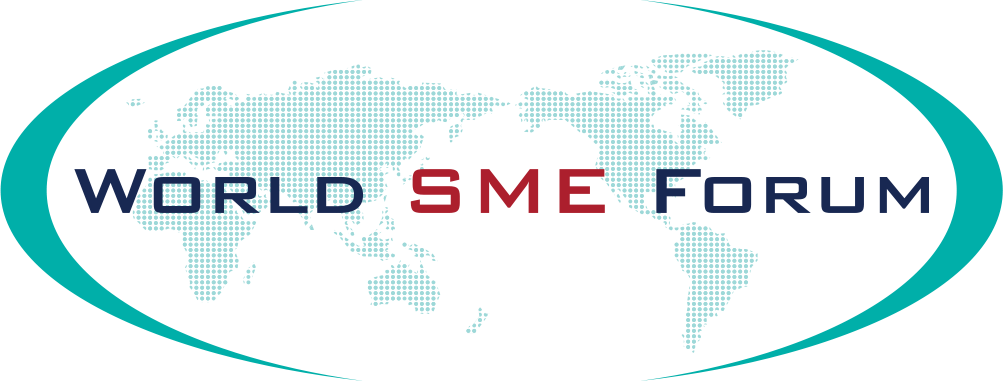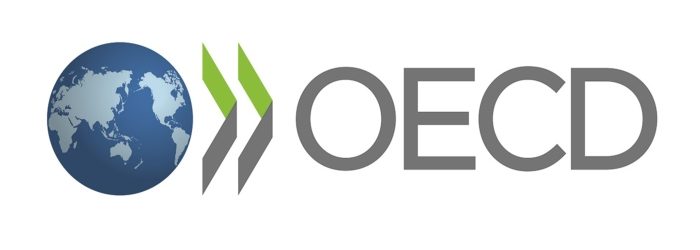“The World SME Forum (WSF) is a private sector-led initiative that supports SME development worldwide, by providing representation in international bodies and facilitating access to finance, global value chains and markets.
In November 2015, G20 leaders welcomed the establishment of WSF in their Antalya Summit communique.”
“WSF will continue to be the voice of SMEs globally as a member of Trade and Investment Task force of 2022 B20 Indonesia”


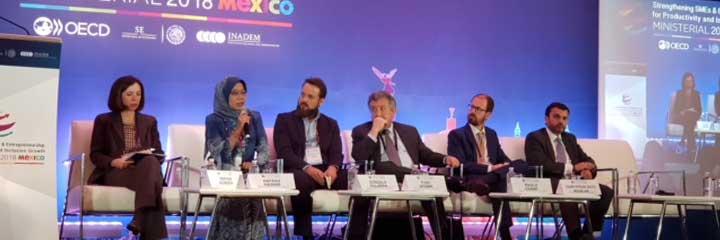
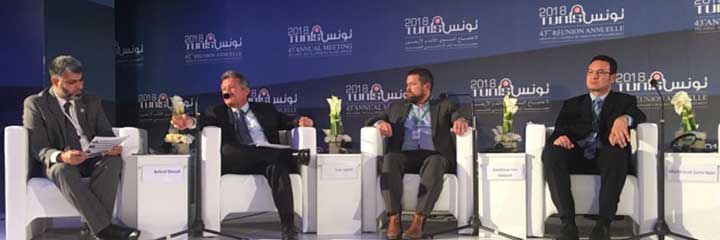
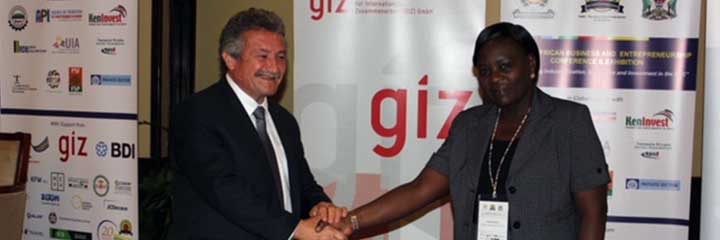

WSF Programs
WSF Advocacy & Research
The World SME Forum aims to provide SMEs with effective representation, founded on well-established and fact-based research, to ensure that the economic interests of the global community of SME businesses are more effectively represented in the deliberations of international governance bodies. Partnering with IFIs and development agencies, and with membership from associations working in the SME space and chambers from all over the world, WSF will advance the recognition of the role of SMEs in the global economy, by aiming to be represented in international bodies such as G20, APEC, ASEAN, and other regional blocs; global standard setting entities; and relevant agencies of the United Nations that either directly or indirectly affect, or aim to affect SME performance and development.
At the urging of several business leaders during the 2015 B20 process, the WSF’s first Advocacy & Research activities will be focused on:
- A glossary of definitions of SMEs in various national and global context – to facilitate effective targeting of policies and programs focused on the SMEs.
- An evaluation of the impact of the latest financial regulations/decisions by global standard setters such as BIS/FSB, etc. on the development and growth of SMEs.
- And a study on the most relevant constraints generated by cross border trade regulations on the SMEs’ export potential.
Advocacy & Research
WSF Advocacy & Research
The World SME Forum aims to provide SMEs with effective representation, founded on well-established and fact-based research, to ensure that the economic interests of the global community of SME businesses are more effectively represented in the deliberations of international governance bodies. Partnering with IFIs and development agencies, and with membership from associations working in the SME space and chambers from all over the world, WSF will advance the recognition of the role of SMEs in the global economy, by aiming to be represented in international bodies such as G20, APEC, ASEAN, and other regional blocs; global standard setting entities; and relevant agencies of the United Nations that either directly or indirectly affect, or aim to affect SME performance and development.
At the urging of several business leaders during the 2015 B20 process, the WSF’s first Advocacy & Research activities will be focused on:
- A glossary of definitions of SMEs in various national and global context – to facilitate effective targeting of policies and programs focused on the SMEs.
- An evaluation of the impact of the latest financial regulations/decisions by global standard setters such as BIS/FSB, etc. on the development and growth of SMEs.
- And a study on the most relevant constraints generated by cross border trade regulations on the SMEs’ export potential.
WSF Advisory Services
WSF offers advisory services and technical assistance to chambers of commerce and SME associations on standards, certification, credit reporting and scoring, and linkages to global value chains. WSF’s programs are aligned with 2015 Turkey B20 recommendations and the ongoing discussions of the 2016 China B20 SME Development Taskforce as follows:
- While the importance of credit information is well understood and credit reporting systems are present in many countries, SME credit reporting remains nascent in many countries. WSF is initiating work to strengthen the knowledge base for SME credit reporting; in a second stage, together with other partners, WSF will contribute to technical assistance activities to strengthen SME credit reporting systems globally.
- One of the main challenges faced by SMEs is to participate in Global Value Chains (GVC). Many SMEs already see the importance of global expansion as a source of sustained growth. But GVCs are particularly sensitive to the quality and efficiency of services, and standards are often lower in emerging markets. WSF is initiating a technical assistance program for SMEs on certification and standards which will include a comprehensive, country-delivered one-stop-shop endorsement system that leverages existing national, regional and international standards. Underpinning this endorsement guide will be an awareness raising and technical assistance program to help SMEs understand what is needed to accelerate their links to GVCs, that would be embedded into, and delivered through, the eWSF
Advisory Services
WSF Advisory Services
WSF offers advisory services and technical assistance to chambers of commerce and SME associations on standards, certification, credit reporting and scoring, and linkages to global value chains. WSF’s programs are aligned with 2015 Turkey B20 recommendations and the ongoing discussions of the 2016 China B20 SME Development Taskforce as follows:
- While the importance of credit information is well understood and credit reporting systems are present in many countries, SME credit reporting remains nascent in many countries. WSF is initiating work to strengthen the knowledge base for SME credit reporting; in a second stage, together with other partners, WSF will contribute to technical assistance activities to strengthen SME credit reporting systems globally.
- One of the main challenges faced by SMEs is to participate in Global Value Chains (GVC). Many SMEs already see the importance of global expansion as a source of sustained growth. But GVCs are particularly sensitive to the quality and efficiency of services, and standards are often lower in emerging markets. WSF is initiating a technical assistance program for SMEs on certification and standards which will include a comprehensive, country-delivered one-stop-shop endorsement system that leverages existing national, regional and international standards. Underpinning this endorsement guide will be an awareness raising and technical assistance program to help SMEs understand what is needed to accelerate their links to GVCs, that would be embedded into, and delivered through, the eWSF
Digital Trade & ePlatforms
The digital economy is presenting SMEs with one of the biggest opportunities in decades, but unfortunately SMEs are not in the position to take full advantage of it. In order to reap the full benefit of the digital economy, WSF is supporting SMEs to prepare for and transition to the new, unfolding, digital world.Through its ePlatform programs, WSF aims to inform SMEs and sensitize them to the potentials and challenges of the digital economy, in full alignment with the G20’s new agenda to prepare the international economic environment for the New Industrial Revolution. This is a complex agenda, and WSF is taking a multi-pronged approach to make it happen by:
- Representing the SMEs’ interests through targeted advocacy in global policy debates, initiatives and fora that have the potential to shape digital trade and strategies going forward, such as UNCTAD’s Aid for eTrade, the current B20 discussions on the creation of the World eTrade Platform, and the agenda of the World Trade Board.
- Hands-on engagement in country to country pilots, such as an ongoing China-Turkey pilot project to boost SMEs’ eTrade, which includes awareness campaigns, capacity building on SME digital strategies, and direct matchmaking through digital platforms and cross-border eCommerce experiment zones.
- Creation of an SME-targeted global online platform, eWSF, to boost opportunities for SMEs in the digital economy. e-WSF will be a one-stop-shop for SMEs to: (i) increase their access to finance; (ii) increase their access to skills, training, knowledge, innovation, expertise and information; and, (iii) increase SME matchmaking opportunities in their Global Value Chains (GVC).
Digital Trade & ePlatforms
Digital Trade & ePlatforms
The digital economy is presenting SMEs with one of the biggest opportunities in decades, but unfortunately SMEs are not in the position to take full advantage of it. In order to reap the full benefit of the digital economy, WSF is supporting SMEs to prepare for and transition to the new, unfolding, digital world.Through its ePlatform programs, WSF aims to inform SMEs and sensitize them to the potentials and challenges of the digital economy, in full alignment with the G20’s new agenda to prepare the international economic environment for the New Industrial Revolution. This is a complex agenda, and WSF is taking a multi-pronged approach to make it happen by:
- Representing the SMEs’ interests through targeted advocacy in global policy debates, initiatives and fora that have the potential to shape digital trade and strategies going forward, such as UNCTAD’s Aid for eTrade, the current B20 discussions on the creation of the World eTrade Platform, and the agenda of the World Trade Board.
- Hands-on engagement in country to country pilots, such as an ongoing China-Turkey pilot project to boost SMEs’ eTrade, which includes awareness campaigns, capacity building on SME digital strategies, and direct matchmaking through digital platforms and cross-border eCommerce experiment zones.
- Creation of an SME-targeted global online platform, eWSF, to boost opportunities for SMEs in the digital economy. e-WSF will be a one-stop-shop for SMEs to: (i) increase their access to finance; (ii) increase their access to skills, training, knowledge, innovation, expertise and information; and, (iii) increase SME matchmaking opportunities in their Global Value Chains (GVC).
What's New?
OECD SME AND ENTREPRENEURSHIP MINISTERIAL MEETING
Launch of missing entrepreneurs 2023 on 30 November
Launch of the youth entrepreneurship policy academy
Financial Stability Needs Supervisors With the Ability and Will to Act
